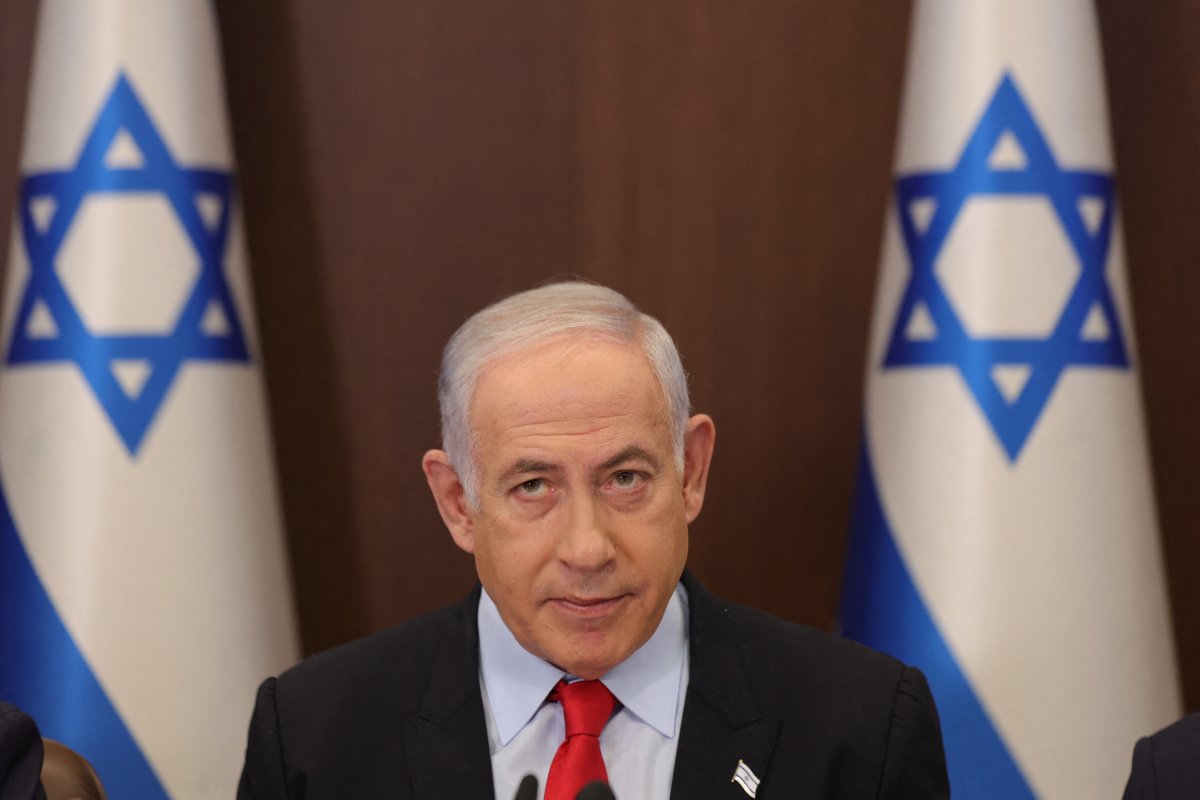Numerous countries including Russia, Iran and Turkey have questioned Israel's nuclear weapons inventory in response to the war that has enveloped Gaza the past five weeks.
On October 7, the militant group Hamas led the deadliest Palestinian militant attack on Israel in history, with Israel subsequently launching its heaviest-ever airstrikes on Gaza in response. As of this week, over 1,400 people in Israel have been killed, The Associated Press reported, while more than 10,000 Palestinians in Gaza have been killed in the ensuing strikes from Israel.
Israeli Prime Minister Benjamin Netanyahu has said his country is "at war" and has cut off food, fuel, electricity and medicine supplies into Gaza. Israel has called up 360,000 army reservists as it prepares for a likely ground offensive into the territory containing an estimated 2.3 million people.
Aside from global debate about ceasefires and further preventing Palestinian civilian casualties among the thousands caught in the warzone, the ongoing conflict has ignited renewed concerns about nuclear weapons provoked by statements made by Israeli public figures.
Russian Response to Israeli Nuclear Threats
Revital "Tally" Gotliv, an Israeli lawyer and member of the Israeli parliament, the Knesset, for the Likud political party, has publicly called for the deployment of a "doomsday" weapon—specifically mentioning the "Jericho" ballistic missile system—in retaliation for Hamas' aggression.

On November 5, Israel's far-right Heritage Minister Amichai Eliyahu said on an Israeli radio station that an atomic bomb could be "one option" to target Hamas militants. He was subsequently suspended by Netanyahu.
Countries like Russia took umbrage with such statements. Russian Foreign Ministry spokeswoman Maria Zakharova called comments by Eliyahu "provocative and unacceptable" and claimed that such public admissions of considering nuclear use was proof that Israel possessed nuclear weapons.
The Stockholm International Peace Research Institute said in June, as part of its annual assessment of global armaments, disarmament and international security, that Israel is likely modernizing its nuclear arsenal and has 90 stored warheads.
Nikolai Sokov, senior fellow at the Vienna Center for Disarmament and Nonproliferation, previously told Newsweek that "Israel is definitely a nuclear weapon state" that adheres to a policy of ambiguity as to how many weapons it actually possesses.
Zakharova also questioned why international organizations such as the International Atomic Energy Agency (IAEA) have remained relatively silent in the light of such rhetoric.
An IAEA spokesperson told Newsweek via email that standard practice is to not comment on statements made by member state officials.
Israel is also not a party to the Treaty on the Non-Proliferation of Nuclear Weapons (NPT) and has not accepted IAEA safeguards on some of its principal nuclear activities.
"The agency applies safeguards in Israel, pursuant to an item-specific safeguards agreement," the spokesperson said.
Dmitry Gorenburg, a senior research scientist at the Center for Naval Analysis, told Newsweek via email that Russia's response to Israeli nuclear threats is part of a larger geopolitical strategy that rebukes the West in reaction to nuclear constraints associated with the Ukraine war.
"Given the strong support for Israel coming from the United States, Russia sees an opportunity to strengthen relations with the Arab world at the expense of the U.S.," Gorenburg said. "This is essentially a reprise of the Soviet Union's Cold War strategy in the region.
"It's also a constraint, in that Russian support for Israel would not help it geopolitically with Israel or with the West, but would have costs in terms of its relations with the Arab world."
Turkey and Iran join Calls for Investigation
Turkish President Recep Tayyip Erdoğan also expressed his indignation at Israeli threats associated with nuclear weapons. He referred to the nation as a "spoiled child of the West."
"The issue of nuclear weapons, the existence of which was admitted by Israeli ministers, should be investigated," Erdoğan said on Saturday during an emergency joint Arab-Islamic summit in the Saudi Arabia capital Riyadh. "If there are nuclear bombs smuggled out of the control of the International Atomic Energy Agency, they must be revealed."
Amir Saeid Iravani, Iran's permanent representative to the United Nations, said during the recent Conference on the Establishment of a Middle East Zone Free of Nuclear and Other Weapons of Mass Destruction that such rhetoric has caused "real and widespread concerns" about proliferation.
"Recent nuclear threats by the Israeli regime's high-ranking officials against Iran and Palestine highlight the danger posed by these weapons at the hands of such an illegitimate regime," Iravani said, according to international Iranian news network Press TV.
Both Russia and Iran expressing joint concern towards Israel's nuclear weapons stockpile is no surprise, Gorenburg said, considering that Moscow is dependent on certain Iranian weapons, like Shahed drones.
"Given Iran's indirect involvement with Hamas, and with Hezbollah, I suspect that Russian leaders feel they are constrained from taking too strong an anti-Hamas position," he said. "As for the nuclear rhetoric itself, I think it's another case of whataboutism.
"Given the criticism of Russia tossing around nuclear rhetoric recently, its spokespeople are only too happy to highlight Western countries doing so."
Uncommon Knowledge
Newsweek is committed to challenging conventional wisdom and finding connections in the search for common ground.
Newsweek is committed to challenging conventional wisdom and finding connections in the search for common ground.
About the writer
Nick Mordowanec is a Newsweek reporter based in Michigan. His focus is reporting on Ukraine and Russia, along with social ... Read more
To read how Newsweek uses AI as a newsroom tool, Click here.






